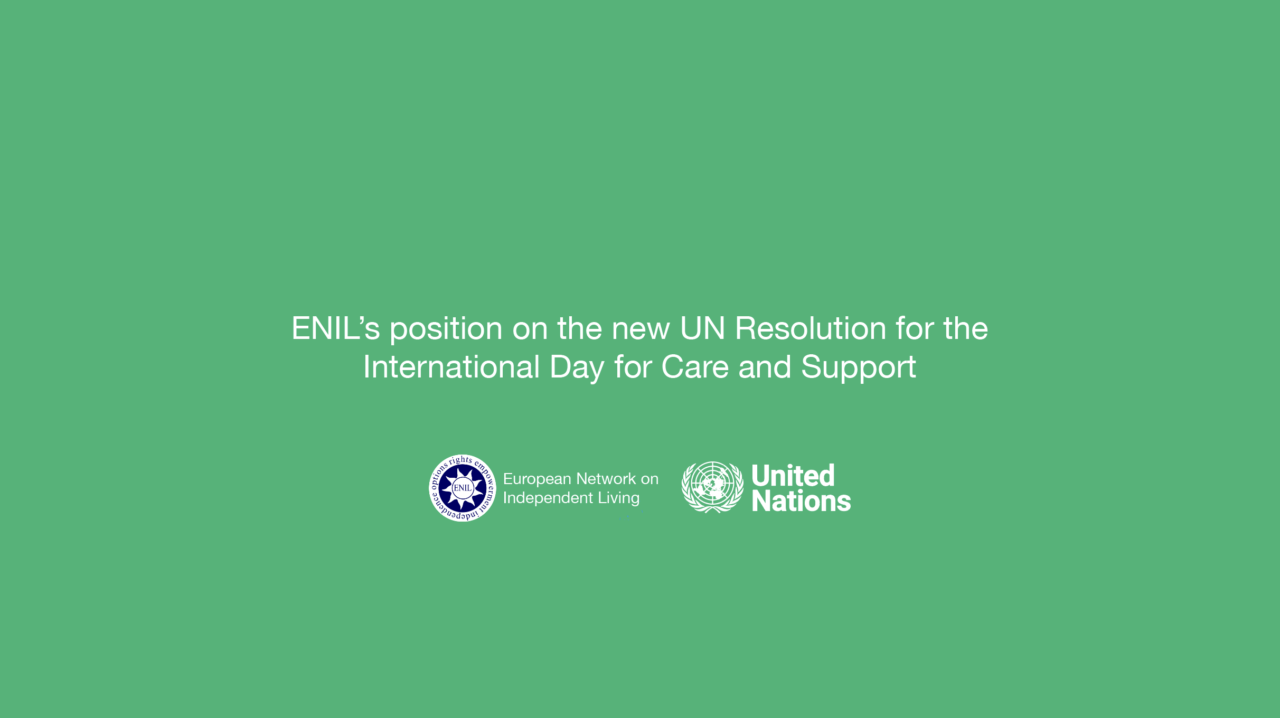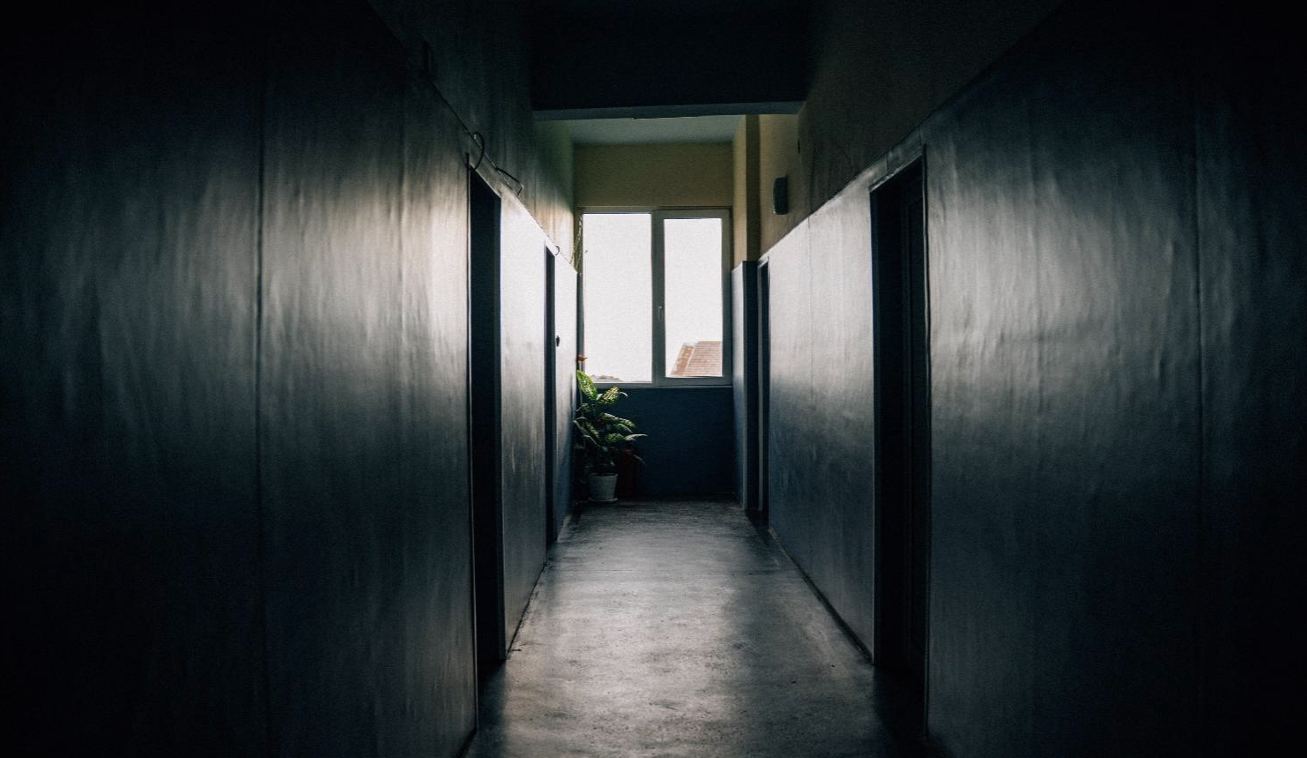On 24th July, the United Nations (UN) General Assembly adopted the UN Resolution for the International Day for Care and Support on 29 October. Support services are a pillar of Independent Living, as they allow disabled people to live fully included in society – to choose how they spend their time, to work, study, and participate in public life. ENIL welcomes the international recognition this Resolution gives to support services and to “promoting long-term care and support at home and in the community”. However, we regret that the Resolution focuses on those providing support, rather than the people receiving it.
The Resolution recognizes “the importance of increasing the resilience of older persons, persons with disabilities and persons living with mental health conditions”. It calls to promote “long-term care and support at home and in the community, with a view to ensuring their empowerment, autonomy and independence”. Nevertheless, we are concerned that the rights of disabled people appear as a mere “checklist” exercise, as the rest of the Resolution focuses on the issues of informal carers and service providers.
Since the COVID-19 pandemic, we have witnessed a return to the medical model of care, with an emphasis on the needs of carers and services providers instead of the rights of disabled people. The term “independent living services” is increasingly hijacked to describe services that do not fit this definition, such as group homes or sheltered workshops, in order to market their work and access funding. But in reality, disabled people are treated as merely objects of care and protection, instead of having real choice and control.
Disabled people, and particularly disabled women and girls, are at a heightened risk of suffering violence, abuse, and neglect from carers and service providers, especially if they live in institutions. These risks and the intersectionality of gender and disability are not sufficiently explored in the Resolution, which only highlights gender issues regarding unpaid carers and service providers. A gender perspective on support cannot exclude the experiences of disabled women.
Finally, we would like to express our disappointment that the UN General Assembly did not sufficiently consult disabled people, particularly survivors of institutionalization, on the text of this Resolution.
We call on the UN General Assembly and all other UN agencies and bodies to:
- Align all their policies, activities, and documents with the Guidelines on deinstitutionalization, including in emergencies.
- Put disabled people at the center of all reports and resolutions regarding support and ensure that their rights are respected. Support must respond to the needs and preferences on disabled people, with real choices on the support services they want, and should not be the decision of administrative or judicial authorities, family members, or service providers.
- Promote a vision of independent living in line with the UN Convention on the Rights of Persons with Disabilities, to avoid that segregated services such as group housing, sheltered workshops, and day-care centres are perceived as “independent living services”.
- Consider peer support as a valuable form of support, instead of focusing exclusively on support from non-disabled people to disabled people.
- Include disabled women in gender equality policies, with an intersectional approach, and address the specific forms of violence and abuse disabled women experience.
- Consult disabled people and their organizations in all policies that concern them, making sure survivors of institutionalization are part of conversations regarding support, independent living, and deinstitutionalization.
For more information, please contact rita.crespo-fernandez@enil.eu



